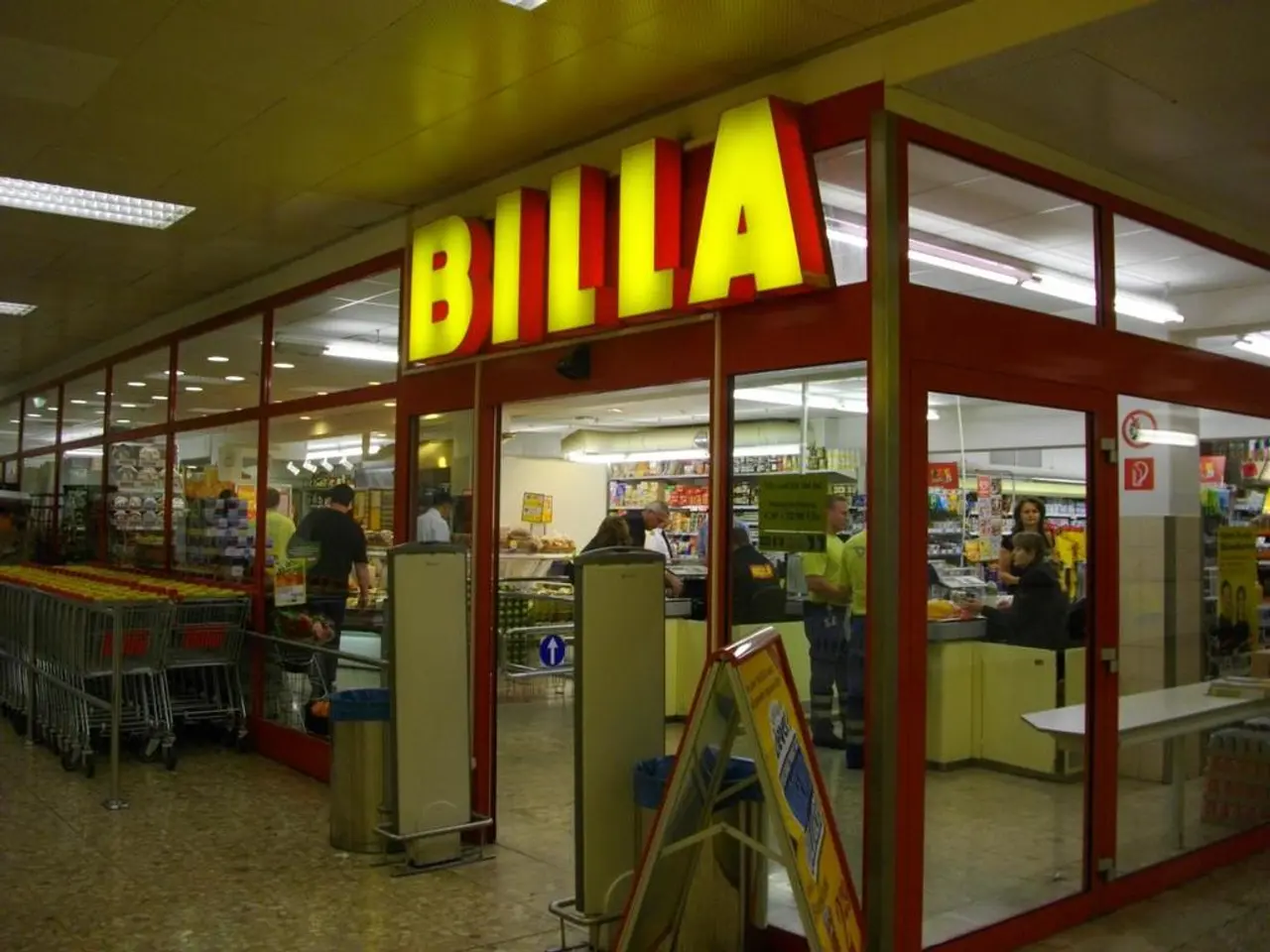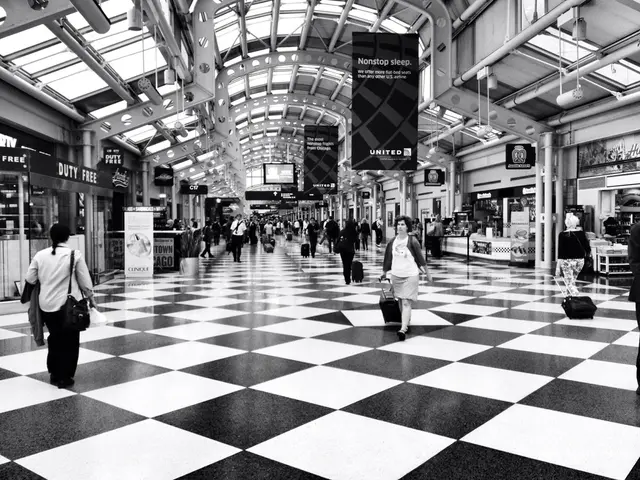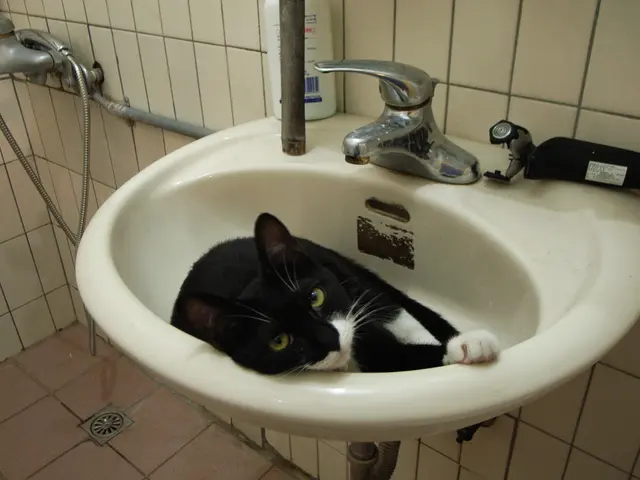Iconic Retail Landmark Bids Farewell: Beales Department Store Shuts Down After 140 Years of Service
=========================================================================
In the heart of Poole, a town in Dorset, UK, the iconic Beales department store is set to close its doors for the last time on May 31, 2025. This closure, after a 140-year run, serves as a stark reminder of the challenges facing the UK high street retail industry.
For many, Beales is not just a place to shop but a symbol of nostalgia and a part of everyday life. However, the retail landscape is changing, and the closure is a reflection of these shifting dynamics.
The closure follows a major closing down sale offering discounts of up to 70%. The decision to close the Poole store is largely attributed to escalating costs, a common challenge faced by high street businesses. Over half (52%) of surveyed high street businesses cite soaring costs as a main challenge.
The UK high street retail industry currently faces significant challenges, including rising business costs, reduced consumer spending, and declining footfall. These factors contribute to store closures like Beales' Poole branch.
Key trends show a structural shift in retail with consumers spending more online and fewer in physical stores, resulting in many high street shops becoming financially unsustainable. The rise of online shopping and increasing operational costs led to Beales' downturn in recent years.
In 2020, Beales entered administration, resulting in the closure of 22 stores across the country. The closure of Beales offers a timely opportunity for industry experts, retailers, and consumers to reflect on the changing landscape of shopping and the role that physical stores will play in the future.
The closure serves as a cautionary tale for other high street stores struggling to survive in an increasingly digital world. It is a stark reminder of the challenges facing UK high street retail, with more shoppers turning to online platforms.
The government and sector responses aim to alleviate these pressures. Calls include reducing business rates for high street shops, incentivizing local shopping, and taxing large online retailers more heavily. However, experts warn only substantial cuts in costs and strategic investment (potentially up to £5 billion) will be enough to slow the high street’s decline.
Survival increasingly depends on adaptation—using technology, cutting costs, and fostering local community engagement to stimulate footfall and sales. Thus, the closure of Beales’ Poole store is emblematic of the ongoing high street crisis driven by economic pressures, changing consumer behavior, and competitive challenges from online retail.
Locals in Poole and beyond will miss Beales as it has been a cornerstone of the town for generations. Customers are encouraged to visit the Poole store one last time before it closes for good and take advantage of the massive discounts in the closing sale.
For more updates on the evolving retail industry and the latest news on UK businesses, stay tuned to the platform.
- The closure of Beales, a UK department store, after 140 years in operation, signifies the difficulties many businesses face in the high street retail market.
- The escalating costs and reduced consumer spending are key challenges impacting the UK high street retail industry, leading to store closures.
- The shift in consumer behavior towards online shopping has made many high street shops financially unsustainable.
- The rise in operational costs and the shift to e-commerce contributed to Beales' decline in recent years.
- In 2020, Beales entered administration, resulting in the closure of 22 stores, serving as a warning to other high street businesses struggling to adapt to the changing retail landscape.
- To alleviate the pressures on the high street, the government and sector responses propose reducing business rates, encouraging local shopping, and taxing large online retailers more heavily.
- Strategic investment and the adoption of technology, cost-cutting measures, and local community engagement are essential for high street stores to survive in the increasingly digital marketplace, especially in the face of competition from e-commerce and lifestyle, home-and-garden, and general-news online platforms.








